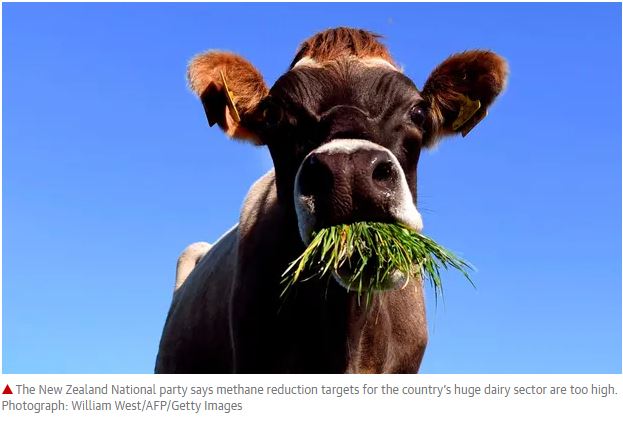New Zealand introduces bill for zero carbon emissions by 2050
| |
|||
| แหล่งที่มา : www.theguardian.com | วันที่โพสต์ : 8 พ.ค. 2562 | ||
| New Zealand introduces bill for zero carbon emissions by 2050 |
|||
 |
|||
| Jacinda Ardern says law will address climate change but faces opposition from farmers over plans to reduce methane emissions
Prime minister Jacinda Ardern said on Wednesday that the bill, which would introduce targets for carbon and biogenic methane emissions and would establish an independent climate change commission, was aimed at addressing the “long-term challenge of climate change” – the biggest single challenge facing the world. “We know the climate is changing. People can see that,” Ardern said. “This legislation makes a start on tackling climate change because the alternative is the catastrophic cost of doing nothing.” While parts of the bill have cross-party support, targets for the reduction of methane in the agricultural sector have been a source of dispute. The opposition National party says they are too high and environmentalists want the country to aim for net-zero emissions. The bill was also criticised by Greenpeace for having no way of enforcing its targets. “What we’ve got here is a reasonably ambitious piece of legislation that’s then had the teeth ripped out of it. There’s bark, but there’s no bite,” said Greenpeace New Zealand executive director, Russel Norman. Speaking in parliament on Wednesday, climate change minister James Shaw said he hoped the bill would become law by the end of the year. Shaw said the government had been impacted by the sight of tens of thousand of New Zealand school students who went on strike in March to protest lack of action on climate change. “We hear them,” said Shaw. “The zero carbon bill outlines our plan to safeguard the future that those school students will inherit. The critical thing is to do everything we can over the next 30 years to limit global warming to no more than 1.5C and the zero carbon bill makes that a legally binding objective.”
As well as reducing carbon dioxide emissions, which Shaw called “the most important thing we need to tackle”, the bill also focuses on the reduction of methane from the agricultural sector, with a target for a 10% reduction in biological methane by 2030 and a provisional reduction of between 24%-47% by 2050 – a range that will subject to review by the independent climate change commission.
“Agriculture is incredibly important to New Zealand, but it also needs to be part of the solution,” said Shaw. |
|||
 |
|||
|
Simon Bridges, leader of the National party, said while his party was committed to a bipartisan approach to combating climate change and welcomed the establishment of an advisory climate change commission and the target of zero carbon emissions, the party had “serious reservations” about the rate of methane reductions. “New Zealand has been a global leader in sustainable agricultural production. For this leadership to be enhanced the sector must continue to embrace change, but this target goes beyond credible scientific recommendations.” Meanwhile, independent environmental group Forest & Bird, which is supportive of many components of the bill, said it was “disappointed” at what it saw as special treatment for agriculture. |
|||






